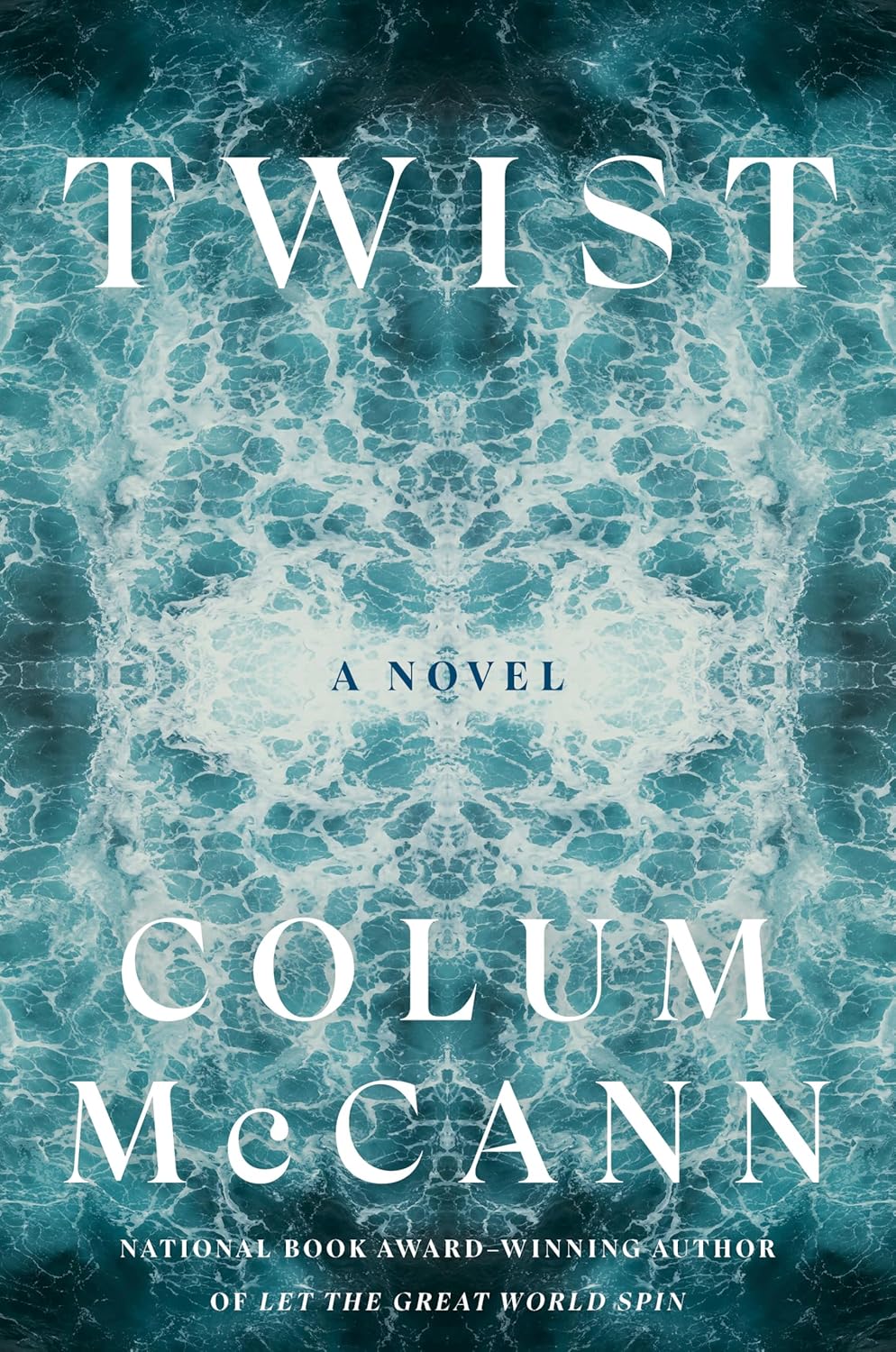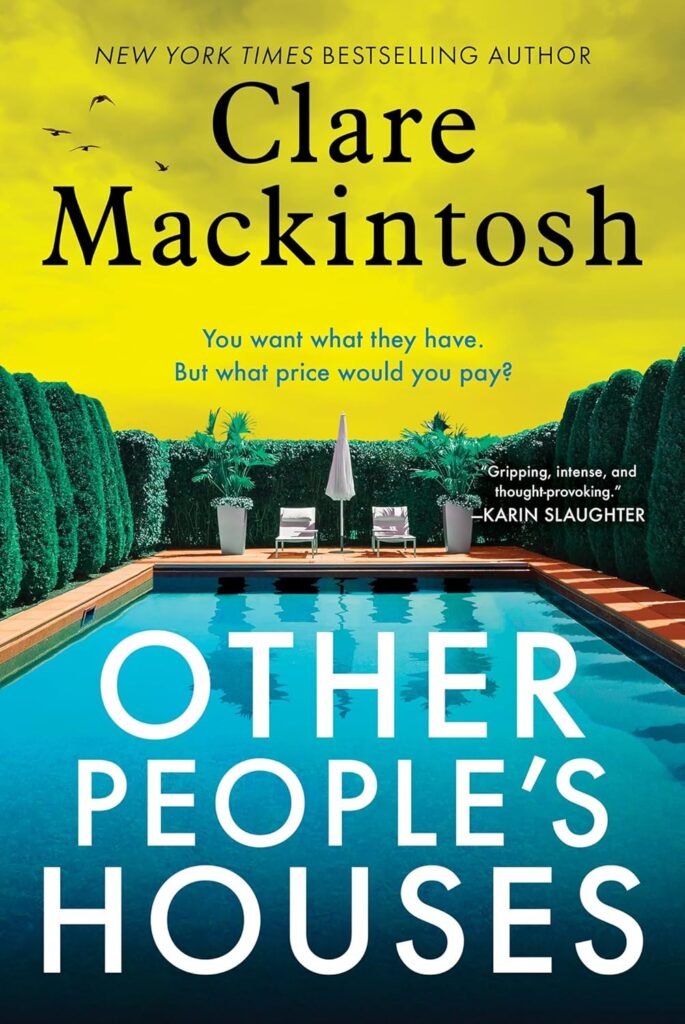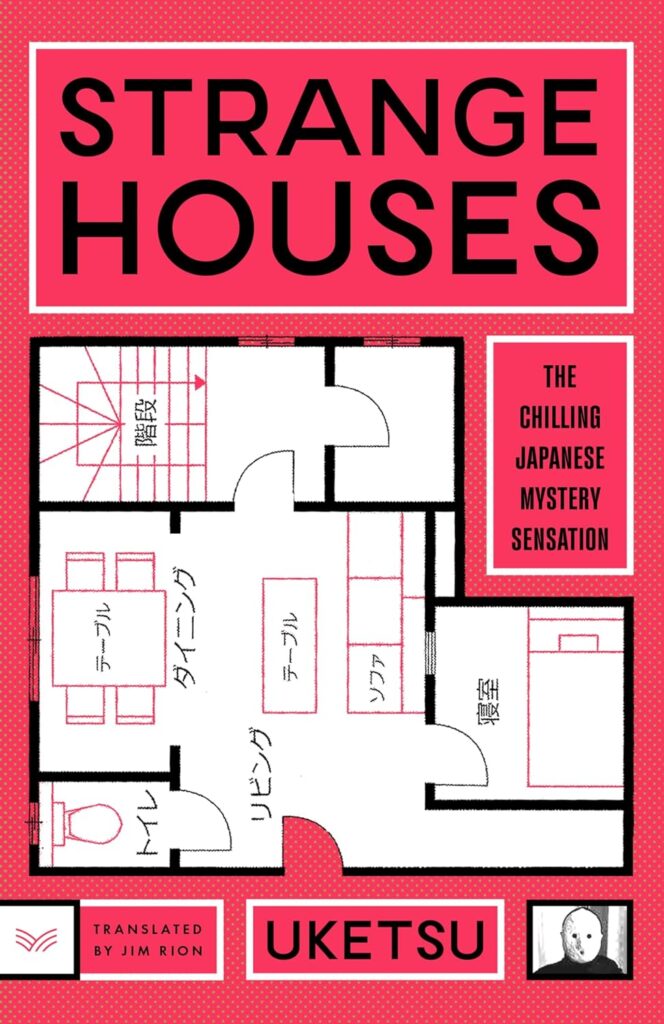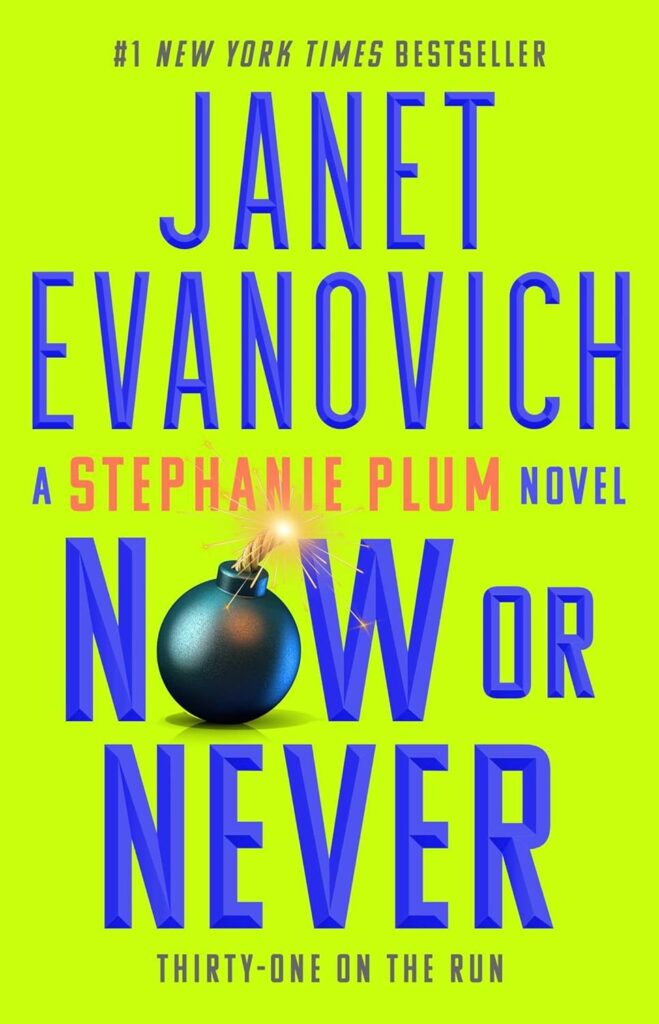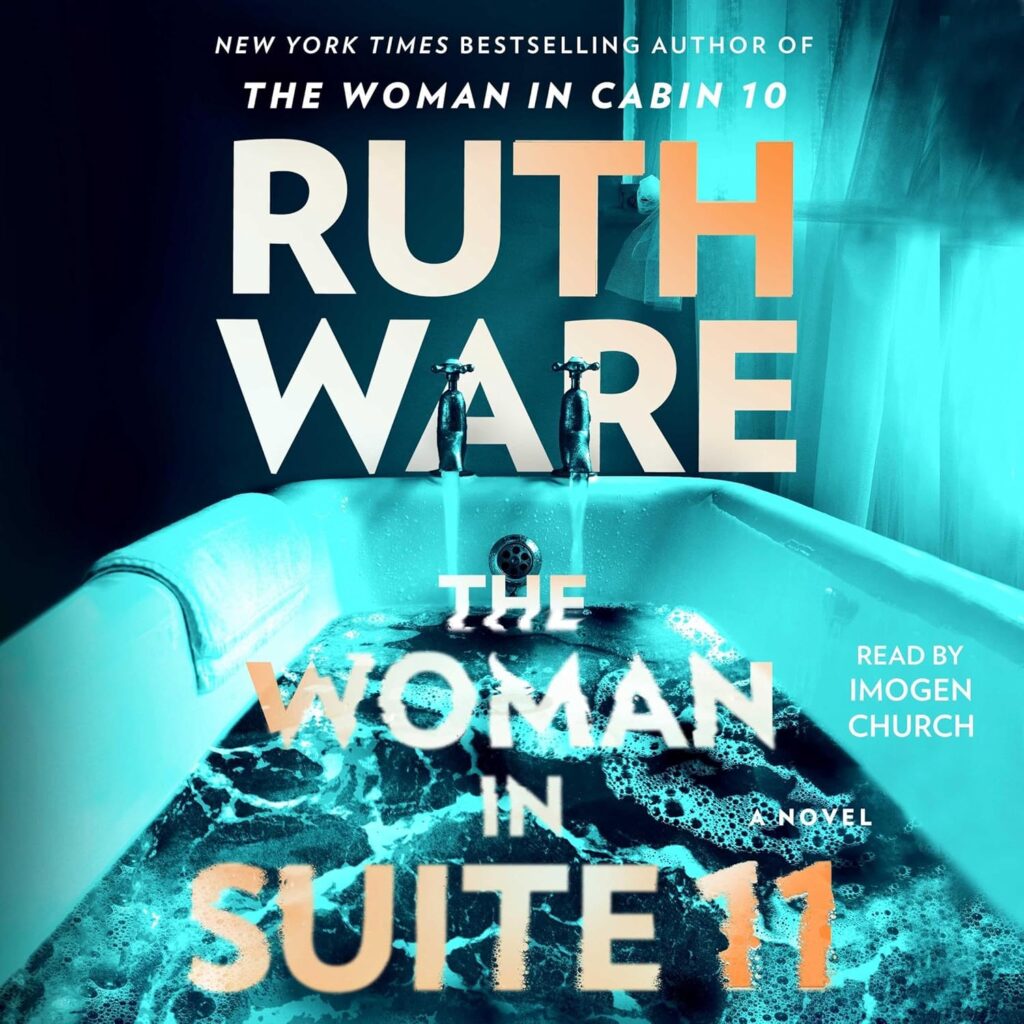Dive deep into our Twist book review by Colum McCann. Explore its gripping plot, complex characters, and profound themes of connection and rupture in the digital age. A must-read analysis!
The contemporary world hums with an almost imperceptible current, a vast network of unseen data flowing through fiber-optic cables buried deep beneath the ocean. This intricate infrastructure, designed to connect us instantaneously across continents, often paradoxically highlights a profound human isolation. In an era defined by hyper-connectivity, the underlying emotional distances between individuals can feel more pronounced than ever. It is into this complex paradox that Colum McCann’s latest novel, Twist, bravely plunges, offering a compelling exploration of the invisible threads that bind our world, both digital and human.
Colum McCann is not merely an author; he is a formidable literary force, a National Book Award winner for Let the Great World Spin, and a New York Times bestselling author whose fiction has been translated into over forty languages. He is celebrated for his lyrical prose and deeply human storytelling, consistently weaving intricate narratives that explore the profound complexities of empathy and shared humanity. His body of work consistently demonstrates a unique ability to find beauty and mystery even in the face of conflict and human struggle. This established literary standing lends significant weight to Twist, positioning it as a major contribution to contemporary fiction.
Twist: A Novel has been lauded as an international bestseller, described as an “urgent and ingenious” narrative and a “propulsive novel of rupture and repair in the digital age”. It delves into a hidden world, exposing the raw human labor behind the dazzling veneer of technology, and confronts what has been termed “the great loneliness of the connected world”. This novel arrives at a moment when society’s reliance on digital infrastructure is absolute, making its exploration of digital vulnerability profoundly timely. The novel’s focus on the deep-seated paradox of technological connection fostering emotional distance is a central concern. The constant flow of information, while seemingly bringing people closer, can inadvertently amplify feelings of isolation, making the book a powerful commentary on the true, often unseen, costs of our modern digital existence. This examination suggests a critical look at how societal advancement, despite enabling unprecedented communication, may have inadvertently highlighted or even exacerbated human solitude.
At its core, Twist is a masterfully woven narrative that uses the literal breaking of undersea cables as a powerful metaphor for human connection and disconnection, challenging readers to confront the fragility of our modern existence. This review will explore how McCann crafts a story that is both an exhilarating adventure and a deep meditation on truth, identity, and the possibility of repair in a fractured world. The author’s long-standing commitment to exploring empathy, exemplified by his co-founding of Narrative 4, a global nonprofit that uses storytelling for community action and change , is profoundly evident in this work. The “broken cables” and “ruptured things” within the narrative are not merely plot devices but serve as a canvas for McCann to explore how individuals, particularly the characters Anthony Fennell and John Conway, navigate personal breakage and seek pathways toward repair. This approach suggests that Twist, while appearing to be about technology and global infrastructure, is fundamentally an empathetic inquiry into the human condition, inviting readers to step into the characters’ fractured realities and understand their pain and attempts at healing.
Unraveling the Plot: The Depths of ‘Twist’ Book Review
The narrative thrust of Twist commences with Anthony Fennell, an introspective 48-year-old Irish journalist and playwright, embarking on a unique and profoundly relevant assignment: to cover the intricate world of underwater cables that carry the vast majority of the world’s information. McCann meticulously emphasizes that “the sum of human existence—words, images, transactions, memes, voices, viruses—travels through the tiny fiber-optic tubes” , setting the stage for a story where the literal infrastructure of our digital lives becomes a potent metaphor for human connection and its inherent fragility.
Fennell’s journey takes him to the west coast of Africa, specifically Cape Town, where he boards the Georges Lecointe, a cable repair vessel flying under the flag of Mauritius. Here, he encounters John Conway, a fellow Irishman and the ship’s enigmatic chief of mission. Conway is a man of intriguing contradictions: a highly skilled engineer and an accomplished freediver capable of reaching “extraordinary depths”. He is initially portrayed as a charismatic leader, admired by his crew for his patience under pressure, yet Fennell quickly senses a “dark side” to him, becoming “obsessed with cracking whatever the man is hiding”.
The core of the plot revolves around a series of major underwater cable breaks. These are not mere technical glitches; they are presented as events of “Biblical proportions,” caused by a “gargantuan underwater landslide”. McCann vividly portrays the immediate societal impact of such a disruption: “the internet down, no cell phone service, no ATM service, and stores accepting cash only”. This chillingly realistic scenario serves as a stark, immediate consequence of physical breakage, forcing the characters to confront not only the external crisis but also their own internal “breaks.” The ship’s arduous mission involves repeatedly dropping a grappling hook to search the “pitch-black ocean water” for the broken cables, a painstaking process that can take 15 hours per sweep. The success of this mission is paramount, as “the very cables they seek to fix carry news that may unravel their own lives”. The explicit detailing of these “major underwater cable breaks” and Fennell’s personal “wreckage” from drinking, from which he seeks “repair” , establishes a profound structural mirroring. The external, physical breakdown of global communication directly parallels the internal, psychological fragmentation of the characters, creating a constant interplay that elevates the narrative from a simple adventure story to a profound meditation on interconnectedness.
As the mission prolongs Fennell’s time at sea, a parallel personal narrative unfolds. He is seeking “repair” from years of drinking that have caused “personal wreckage”. Without access to alcohol, he undergoes a process of sobering up, using the isolation of the sea to reflect and write letters to his estranged son, a decade-long silence he desperately wishes to mend. This journey of self-reflection and attempted reconciliation is a central driving force for his character, as he aims to “knit at least some distant parts of myself anew”.
Fennell’s investigation into Conway’s mysterious past intensifies, leading to a confrontation where Conway revokes Fennell’s access to communication. A “shocking event” involving Conway drives the dramatic momentum, revealing that he is “not who he claims to be”. Intertwined with Conway’s story is that of Zanele, a South African actress and Conway’s partner, who leaves for London on her own “literary adventure”. Her story, including her eventual rise to international stardom after an attack, provides a crucial emotional and thematic counterpoint to the men’s journey at sea. The Georges Lecointe itself, described as a “closed ecosystem” with a crew of “53 men” , becomes a symbolic stage. The tensions that “simmer” among the characters on board and the revelations about Conway’s true identity suggest that even in a contained environment, human connection is fragile and prone to its own “breaks.” This implies that the challenges of connection and repair are universal, affecting individuals even when physically isolated from the larger world, reinforcing the novel’s broader commentary on human vulnerability.
Characters That Resonate: A ‘Twist’ Book Review of Human Depths
The characters in Twist are not merely participants in the plot; they are living embodiments of the novel’s central paradoxes, each navigating their own internal landscapes of connection and disconnection.
Anthony Fennell, the 48-year-old Irish journalist and playwright, serves as the narrative’s primary lens, an “introspective” figure grappling with profound personal demons. He arrives in Cape Town as a “lost soul” , his motivation for covering the cable repair stemming from a deep-seated desire for “repair” from years of alcoholism and “personal wreckage”. His journey at sea, devoid of alcohol, becomes a literal and metaphorical path to sobriety, allowing him to compose letters to his estranged son, a decade-long silence he desperately wishes to mend. Fennell’s internal struggle is central to his arc, encapsulated by his own reflection: “I was in a small room, in a small ship… and the task at hand was to knit at least some distant parts of myself anew”. He is also presented as an “unreliable” narrator, much like Marlowe in Heart of Darkness, struggling with writer’s block and the inability to articulate certain truths due to promises or emotional barriers. His personal quest for repair directly reflects the novel’s overarching theme of mending what is broken.
John Conway is introduced as the charismatic, mysterious chief of mission, a skilled engineer and a “fearless freediver capable of reaching extraordinary depths”. He is admired by his crew as a “hero,” patient under pressure. However, Fennell perceives a “dark side” and becomes “obsessed with cracking whatever the man is hiding”. Conway’s shifting personas and changing names raise profound questions about authenticity and the possibility of escaping one’s past. His cynical yet resonant declaration, “Everything gets fixed and we all stay broken” , encapsulates a core thematic tension of the novel, suggesting a deep-seated belief in the permanence of human brokenness despite external repairs. His eventual disappearance and loss of contact with Zanele further underscore this theme of destruction over repair. While Fennell seeks personal “repair” , Conway asserts the inherent and possibly unfixable nature of human brokenness. Zanele, through her art, asks a broader question: “What are we waiting for to repair the world?”. These characters are not just individuals; they are living manifestations of the novel’s core thematic paradox of rupture and repair. Fennell embodies the hope for individual repair, Conway the cynicism about its permanence, and Zanele the call to action for collective repair. Their arcs, therefore, are not merely personal journeys but philosophical explorations of the human condition in a fractured world.
Zanele Ombassa, a South African actress, is Conway’s partner and serves as a vital emotional anchor in the narrative. Her character embodies both strength and vulnerability, and her relationship with Conway, strained by distance and diverging paths, is depicted with nuanced complexity. Zanele’s “literary adventure” to London and her later transformation into an international star after an attack highlight themes of resilience and the pursuit of one’s own narrative. Crucially, Zanele also becomes a voice for environmental concerns, directing a play about “environmental degradation, including microplastics in the oceans,” implicitly asking, “What are we waiting for to repair the world?”. Her perspective underscores the novel’s broader ecological message.
The relationships between Fennell, Conway, and Zanele are far from static; they are constantly “twisted” and re-formed. Fennell’s journalistic pursuit of Conway morphs into a personal obsession, mirroring the grappling hook’s search for the cable. The tension on the ship is “amped up” not just by the mission but by the evolving relationships. The novel explores how these individuals, despite their disparate lives and motivations, are bound by unseen threads of fate, shared experience, and the universal human quest for understanding and connection. The explicit portrayal of Fennell as an “unreliable” narrator and the emphasis on Conway’s “changing names and shifting personas” indicate a deliberate blurring of the lines of objective truth and stable identity. The reader, much like Fennell, is left to “piece together fragments to construct a coherent narrative” about Conway. This technique reinforces the theme of “truth and narrative” , implying that in a hyper-connected world flooded with information, discerning true identities and coherent stories becomes increasingly difficult, mirroring the “noise” in communication channels.
Themes Explored in ‘Twist’ Book Review: Beyond the Surface
At its heart, Twist is a profound exploration of connection and disconnection, both literal and metaphorical. The novel vividly portrays the irony of our digital age: while fiber-optic cables facilitate instantaneous global communication, they simultaneously underscore “the great loneliness of the connected world”. McCann observes that we live in an “epidemic of loneliness and isolation” , where the machinery of connection paradoxically leads to a “loss of interaction, proper interaction, with one another”. The novel challenges readers to consider whether true connection can exist beyond the digital facade.
The literal breaking of undersea cables serves as the central, powerful metaphor for the myriad forms of rupture and repair in human lives and society. Fennell’s personal quest to “knit at least some distant parts of myself anew” from years of drinking directly mirrors the ship’s mission to fix the physical cables. However, this theme is complicated by Conway’s cynical observation: “Everything gets fixed, and we all stay broken”. This raises the question of the “illusion of repair” , suggesting that while external problems might be temporarily mended, deeper human fractures often persist.
Twist is explicitly described as a “meditation on the nature of narrative and truth”. Through Fennell’s perspective, which is noted as “unreliable” , McCann explores how stories are constructed from fragmented information, blending “fact and conjecture”. The novel questions how individuals piece together understanding in a world saturated with information, often creating “paywalls out of the piles of shredded facts”. This theme is particularly relevant in an age of misinformation, challenging readers to critically examine the narratives they consume and create.
The chilling opening scenario of a world without internet or ATMs due to cable breaks starkly highlights society’s profound dependence on fragile digital infrastructure. Beyond this, McCann weaves in a crucial environmental message. The first cable break is attributed to the Congo River flooding and expelling garbage into the sea, and the grappling hook frequently snags “car mufflers or plastic chairs”. Zanele’s character further amplifies this, focusing on “environmental degradation, including microplastics in the oceans”. The poignant line, “If the ocean was a bank, they’d have saved it a long time ago” , powerfully critiques humanity’s neglect of the natural world, suggesting that our technological progress comes at a significant ecological cost.
The characters in Twist are forced to confront “the most elemental questions of life, love, absence, belonging”. Fennell’s journey is one of self-discovery and an attempt to reconnect with his estranged son and his own past. Conway’s shifting identities and hidden past embody the struggle to define oneself and find a true sense of belonging. The isolation of the sea forces these men to confront their inner selves, questioning whether, in a “fractured world,” they can “reweave themselves out of the thin, broken threads of their pasts”.
The title “Twist” itself is not merely a plot device but a multi-layered thematic cornerstone. It refers to the literal twisting of cables , the unexpected plot developments , the metaphorical “twisted hearts” of characters , and the narrative’s fragmented structure. This rich, multi-layered meaning suggests that McCann deliberately uses the title to encapsulate the novel’s core concerns: the contortions of truth, the complexities of human relationships, the unexpected turns of fate, and the very act of reweaving narratives from disparate threads. This deliberate authorial choice makes the title itself a profound thematic statement.
Furthermore, the novel is repeatedly compared to Joseph Conrad’s Heart of Darkness , with McCann himself calling it a “sister novel” that offers a “fresh take on colonialism—today’s digital colonialism”. This connection elevates the theme of digital vulnerability beyond mere technological breakdown. It implies that the global information network, while appearing benign, can exert a new form of control and exploitation over developing nations, exemplified by the raw labor in Africa and the extraction of recyclables from broken cables in Accra. This suggests a critical commentary on power imbalances in the digital age, where information flow can be a tool of subtle, modern-day subjugation, echoing Conrad’s critique of imperial exploitation.
The Art of Storytelling: Language and Narrative Style in ‘Twist’ Book Review
Colum McCann’s prose is consistently lauded as a major strength of Twist, described as “beautiful, sparkling” , “gorgeously written” , and possessing “power and lyrical propulsion” that can be “quite dazzling”. Reviewers highlight his “shimmering prose” and the meticulous crafting of “each line”. His “close-focus descriptive prose – taut, compressed, image-rich” creates an immersive atmosphere, particularly in depicting the mysterious underwater world and the vastness of the ocean. This mastery of language ensures that even the most technical subjects, like cable repair, are transformed into “poetic meditations”.
Twist employs a deliberate and impactful narrative structure that mirrors its thematic concerns. The novel begins linearly but “gradually fragments as Conway’s storyline splinters from the main narrative”. This fragmentation reaches its peak in Part Three, where McCann shifts perspective to “imagining Conway’s final days in Egypt”. This experimental approach, while occasionally creating “confusion” or being “disorienting” for some readers, is intentional, effectively placing the reader in Fennell’s position of “piecing together fragments to construct a coherent narrative”. The three-part structure is even noted to “mimic the arc of a wave – building gradually, cresting with intensity, before receding into a reflective epilogue”. This fragmented structure, particularly in Part Three where fact and conjecture blend, directly mirrors the “noise” and “failure of technical communication” that the cables themselves experience. Fennell’s struggle with writer’s block and his inability to communicate effectively with his son further parallel this. This suggests that McCann intentionally uses narrative form to embody the very themes of connection, disconnection, and the elusive nature of truth. The reader’s disorientation becomes a shared experience with the characters, reinforcing the idea that clarity and coherence are hard-won in a fractured world.
McCann explicitly engages with literary history, most notably through strong echoes of Joseph Conrad’s Heart of Darkness. Salman Rushdie notes, “The spirit of Joseph Conrad hovers over the text, but here the heart of darkness lies at the bottom of the ocean”. McCann himself describes Twist as a “sister novel” to Conrad’s work, offering a “fresh take on colonialism—today’s digital colonialism”. Other allusions, such as to Moby-Dick and The Great Gatsby, further enrich the narrative, providing a framework for understanding themes of obsession, hidden lives, and the elusive nature of truth in the information age.
A hallmark of McCann’s style is his capacity to “make profound statements about the world without sounding pedological”. He achieves this by weaving “arcane and interesting information into his novels” , such as the technical details of cable repair and freediving, which enrich the narrative without overwhelming it. His effective use of lists and an emphasis on the “sound of language and sentence structure” contribute to the depth and impact of his observations. The novel’s introspective narration through Fennell allows for deep dives into philosophical questions without resorting to overt preaching. The ocean in Twist is not merely a setting but a powerful, almost sentient presence. It is where “the heart of darkness lies” , where “unfathomable depths” hide the cables , and where “raw human labor” unfolds. McCann’s “beautiful” descriptions of the ocean and its “other-worldly environment” elevate it to a character in itself. This personification deepens the thematic resonance, suggesting that the ocean’s vast, mysterious, and often destructive nature reflects the unfathomable depths of human psychology and the hidden complexities of global systems. The “underwater punch to the back of the brain” from the landslide further emphasizes its active role in shaping the narrative and the characters’ experiences.
Strengths and Weaknesses: A Balanced ‘Twist’ Book Review
Colum McCann’s Twist is a novel of significant ambition and profound thematic depth, yet like any complex work, it presents both notable strengths and areas that might challenge certain readers.
Strengths
- Masterful Writing and Lyrical Prose: Consistently praised as the novel’s standout feature, McCann’s writing is described as “excellent,” “incredible,” “poetic,” and “dazzling”. His ability to craft “keenly crafted” lines and vivid descriptions creates an immersive and emotionally resonant reading experience, transforming even technical details into compelling narrative elements.
- Timely and Relevant Subject Matter: The novel’s engagement with contemporary issues like digital vulnerability, the pervasive influence of the internet, and humanity’s environmental footprint makes it profoundly resonant for modern readers. It forces a critical examination of our interconnected yet fragile world, prompting reflection on our reliance on unseen infrastructure.
- Profound Thematic Depth: Twist delves into complex themes of connection, disconnection, rupture, repair, truth, narrative, and identity with remarkable insight. It is fundamentally a “meditation on the nature of narrative and truth” , inviting readers to ponder the very fabric of reality and storytelling.
- Immersive Atmosphere and Setting: McCann’s ability to create a strong sense of mood and place, particularly the isolated world of the cable repair ship and the mysterious depths of the ocean, is highly commended. The technical details about undersea cables and free diving are also found “genuinely interesting and informative” by many , adding a layer of factual intrigue to the fiction.
- Empathetic Character Portrayal: Despite some criticisms regarding relatability, many readers appreciate how McCann “brings his characters alive so eloquently” and shows “empathy for characters at the margin of society” , even if their full backstories remain enigmatic, allowing for a nuanced understanding of their struggles.
- Propulsive and Thought-Provoking: The novel is described as “electrifying, propulsive” and consistently prompts readers to reflect on significant contemporary issues and the human condition , ensuring that the narrative lingers long after the final page.
Weaknesses
- Pacing Concerns: A recurring criticism is the novel’s “slow burn” pace, particularly in earlier sections aboard the ship, with some reviewers finding it to “drag out a bit”. Passages detailing daily life at sea could have been “tightened” for a more immediate impact.
- Potential for Narrative Disorientation: The experimental, fragmented structure, especially the shift in perspective in Part Three, can create “confusion” for some readers who might be seeking a more definitive plot resolution. This artistic choice, while deepening the thematic experience, may not appeal to all.
- Dark and Melancholic Tone: The most consistent criticism is the novel’s often “very dark,” “depressing,” and “heartbreaking” emotional content. Some found the “darkness was unrelenting” until the very end, making it emotionally intense and, for some, difficult to continue reading.
- Lack of Character Depth/Relatability (for some readers): While McCann’s empathy is praised, some reviewers felt they didn’t fully connect with or understand certain characters, particularly Fennell, who is occasionally perceived as a “non-entity” or “unreliable” to a fault , which can hinder full immersion for some.
- Overworked Metaphor/Vagueness: The central metaphor of cables representing human relationships is sometimes seen as too “on the nose”. Additionally, the ending, particularly regarding Conway’s fate and motivations, is described as vague or leaving readers “hanging” , which can be unsatisfying for those seeking clear resolutions.
The narrative fragmentation and shifting perspectives in Twist are praised for their artistic ambition and for placing the reader in Fennell’s shoes, but they are also cited as causing “confusion” and “disorientation”. This highlights a common tension in literary fiction: the author’s choice to prioritize experimental form to deepen thematic resonance can sometimes come at the cost of immediate reader comprehension or satisfaction. While the novel is considered a “masterpiece” by some , its structural choices may create a barrier for others seeking a more straightforward narrative. The “dark and depressing” tone is a recurring criticism. However, given the novel’s themes of “brokenness,” “rupture,” “loneliness,” and the “illusion of repair” , this tone is not merely a stylistic choice but a deliberate artistic decision that reinforces the novel’s somber message about the human condition in the digital age. The “unrelenting darkness” can be interpreted as McCann’s unflinching portrayal of the realities of disconnection and environmental decay, suggesting that the emotional intensity is integral to the novel’s truth-telling purpose, rather than a flaw.
Reader Impressions and Critical Acclaim: What Others Say About ‘Twist’ Book Review
The reception for Colum McCann’s Twist is characterized by a blend of enthusiastic praise and thoughtful critique, reflecting the novel’s ambitious scope and challenging themes. Overall, reader sentiment is mixed but leans positive, with an average rating around 3.8 out of 5 stars on Goodreads and 4.2 out of 5 stars on Amazon.
Common Praises from Readers:
- Exceptional Writing Quality: Readers frequently commend McCann’s “excellent,” “incredible,” and “poetic” writing, noting his ability to create vivid descriptions and masterfully portray realistic stories.
- Fascinating Subject Matter: Many found the technical details about undersea cables and free diving genuinely interesting and informative, appreciating the unique insights into a hidden world.
- Thought-Provoking and Insightful: The novel is widely seen as profound, prompting readers to reflect on themes of connection, disconnection, and the impact of technology.
- Empathetic Character Portrayal: McCann is praised for bringing characters “alive so eloquently” and showing “empathy for characters at the margin of society”.
Common Criticisms from Readers:
- Dark and Depressing Tone: This is the most frequent point of contention, with many describing the story as “very dark,” “depressing,” and “heartbreaking,” sometimes making it difficult to read.
- Pacing Issues: Some found the narrative to be a “slow burn” or that it “dragged out a bit,” particularly in the initial sections.
- Vagueness/Unexplained Elements: A desire for more definitive answers regarding character motivations or the ending is sometimes expressed.
The “dark and depressing” tone is consistently mentioned by general readers as both a significant aspect and a criticism. This is not a minor point; it is a defining characteristic that shapes the reader experience. While some find it “heartbreaking” and difficult, others appreciate its “beautifully written” nature despite the darkness. This suggests that the novel’s emotional intensity serves as a filter, deeply resonating with some readers who appreciate its unflinching realism, while potentially alienating others who prefer a lighter narrative. It becomes a key factor in whether a reader connects with the book, making it a polarizing element.
Reader Sentiment Snapshot
| Platform | Average Rating | Total Ratings/Reviews | Representative Quotes |
|---|---|---|---|
| Goodreads | 3.80/5 | 2,773 ratings, 541 reviews | Positive: “You will finish having empathy for every single one due to the incredible writing.” <br> Mixed: “There is a fascination/ revulsion compulsion that affected me deeply while reading this book. I was too enraptured to put it down, but too depressed to continue at times.” <br> Negative (on tone): “As with all of McCann’s novels, the writing is excellent. This story line is very dark and depressing.” |
| Amazon | 4.2/5 | 556 global ratings | (See Goodreads quotes, as sentiments overlap and are well-captured) |
Note: Ratings and review counts are approximate as of the book’s publication period in early 2025.
Integration of Notable Quotes from Professional Literary Critics and Publications:
Professional critics have largely echoed the praise for McCann’s prose and thematic ambition, often framing the novel within a broader literary context.
- Salman Rushdie: “The spirit of Joseph Conrad hovers over the text, but here the heart of darkness lies at the bottom of the ocean.” He further notes it’s a “powerfully realist novel of men at sea, literally, emotionally, and metaphorically. It speaks of the brokenness of our time, the successful and unsuccessful attempts at repairs, and the vulnerability of our world”.
- Kevin Barry: Calls the novel “utterly compelling” and describes it as “an ambitious novel, note-perfect, wild but controlled, with its deft apparatus mapping our most mysterious twenty-first-century malaise—the great loneliness of the connected world”.
- Kirkus Reviews: Hails it as “a beautiful, sparkling book. Another astounding novel from a fiction master”.
- Elif Shafak: States, “Masterfully woven and delicately layered, and told with such calm wisdom that it will take your breath away… Colum McCann is one of our greatest storytellers”.
- The New York Times Book Review: Describes the novel as “Enigmatic and urgent… ingenious”.
- Publishers Weekly: Praises it as “An intriguing story… McCann skillfully ratchets up the uneasiness on board and later adds a provocative twist, taking the novel in an unexpected direction. Readers will be dazzled”.
- Booklist: Declares, “Each line is keenly crafted and every element is momentous in McCann’s ravishing deep dive into connectivity and estrangement, power and plunder, protest and sabotage, creativity and madness”.
- NPR: Highlights “Echoes of Joseph Conrad, as well as the Irish-born National Book Award winner’s own enduring fascination with the complexities of empathy”.
- The Guardian: Finds it “As taut and propulsive as a thriller, and a timeless exploration of narrative and truth, Twist is the work of a master storyteller at the height of his powers”.
A notable observation emerges when comparing critical and general reader reception regarding pacing. While some professional reviews describe the novel as “propulsive” and “taut as a thriller” , general reader reviews frequently cite “slow burn” or “dragging” pacing as a criticism. This discrepancy suggests that literary critics, perhaps more attuned to nuanced prose and thematic depth, may perceive the pacing differently than a general audience seeking a more plot-driven experience. This highlights how varying reading expectations can influence the perception of a novel’s structural choices.
Conclusion
Colum McCann’s Twist stands as an urgent and profound literary achievement, masterfully leveraging the literal world of undersea cables to illuminate the intricate, often fractured, landscape of human connection and disconnection. It is a novel that compels readers to look beneath the dazzling surface of our digital lives and confront the “raw human labor” and emotional complexities that underpin our hyper-connected existence. The book’s central message resonates deeply: in a world where “everything gets fixed, and we all stay broken” , the true challenge lies not just in mending physical breaks, but in reweaving the threads of our own lives and relationships.
McCann solidifies his reputation as one of our greatest storytellers, demonstrating a unique ability to blend meticulous research with lyrical prose, transforming technical subjects into poetic meditations. His empathetic portrayal of characters, coupled with an experimental narrative structure and profound thematic depth, offers a mirror to our fragmented world. Twist is more than a story; it is a philosophical inquiry into truth, identity, and humanity’s impact on a vulnerable planet, echoing literary giants while offering a distinctly modern voice. The novel’s ability to be both an exhilarating adventure and a deep meditation on contemporary issues is a testament to McCann’s continued mastery of his craft.
If you are seeking a novel that challenges, enlightens, and moves you, a book that is both a propulsive thriller and a deeply introspective journey, then Colum McCann’s Twist is an essential read. It will transport you to the unfathomable depths of the ocean and the human soul, leaving you to ponder the invisible connections that truly define us. Dive into this urgent, ingenious, and utterly compelling Twist book review of a novel – you won’t regret embarking on this unforgettable literary voyage.
“Enjoyed this review? Discover more in our Psychological Reviews section.”

